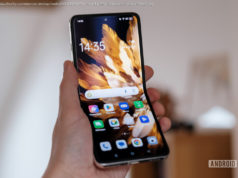The ban follows charges that Kaspersky Lab has close ties to intelligence agencies in Moscow and its software could be used to enable Russian spying.
Twitter on Friday said that it has banned ads from Moscow-based Kaspersky Lab, saying the cyber-security company’s business model conflicts with advertising rules and citing U. S. government claims that Kaspersky has ties to Russian intelligence agencies.
Twitter confirmed the ban in an email to Reuters after Kaspersky Lab co-founder Eugene Kaspersky disclosed the development in a blog post on Friday, saying that the company learned of the ban in early January.
The ban follows charges by Washington that Kaspersky Lab has close ties to intelligence agencies in Moscow and its software could be used to enable Russian spying, which prompted the Trump administration to ban its products from U. S. government networks.
Kaspersky Lab has repeatedly denied those allegations, saying it will open up its code for inspection so that experts can hunt for vulnerabilities in its products that could be exploited by intelligence agencies, and it has asked a U. S. federal court to overturn the U. S. ban.
Eugene Kaspersky said in his blog post that he was surprised by Twitter’s ban and asked the company to reconsider.
“We haven’t violated any written – or unwritten – rules, and our business model is quite simply the same template business model that’s used throughout the whole cyber-security industry: We provide users with products and services, and they pay us for them,” he said.
The Russian company said in an emailed statement that Twitter was the only social media company to ban its ads.
But other social media companies have taken action on Kaspersky Lab.
Facebook in January told the U. S. Congress that it had removed Kaspersky Lab last October from its list of anti-virus offerings to users who go to the social media site from a computer that may be infected with malicious code.
When asked to explain its ban, Twitter said in an email, “This decision is based on our determination that Kaspersky Lab operates using a business model that inherently conflicts with acceptable Twitter Ads business practices.”
Twitter also said it was responding to a U. S. Department of Homeland Security warning of a threat to national security posed by Russian government access to Kaspersky products.
It is rare for Twitter to ban specific advertisers, though it has imposed restrictions on broad categories of advertising. In October, the social network accused Russian media outlets Russia Today (RT) and Sputnik of interfering in the 2016 U. S. elections and banned them from buying ads.
Last month, Twitter said it would prohibit cryptocurrency advertising to avoid giving publicity to potential fraud.
Twitter more frequently removes ads on a case-by-case basis, although enforcement is uneven.
Last year, Twitter removed a video ad from Republican U. S. Representative Marsha Blackburn, saying a remark she made about abortion was inflammatory. Twitter later reversed the decision.
© Thomson Reuters 2018
For the latest tech news and reviews, follow Gadgets 360 on Twitter, Facebook, and subscribe to our YouTube channel .
My TV Is 10 Years Old and I Still Can’t Convince Myself to Upgrade
If Black Ops 4 Doesn’t Have Single-Player Mode, It Shouldn’t Be $60
Gaming Is Too Damn Expensive in India






